Philippines earthquake death toll rises to 100
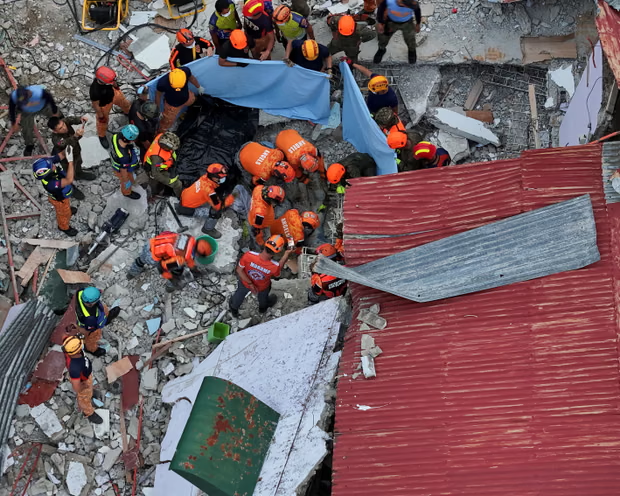
The death toll from a powerful earthquake in the Philippines has risen to at least 69, with the number of patients overwhelming hospitals on the island of Cebu.
Injured children cried and adults screamed as they were treated on beds beneath blue tents outside the Cebu provincial hospital. They had been wheeled outside as a precaution against waves of aftershocks overnight.
The shallow, magnitude-6.9 quake struck late on Tuesday in the north of Cebu, near Bogo, a city of 90,000 people, according to the Philippine Institute of Volcanology and Seismology (Phivolcs).
The agency said that by Wednesday evening, more than 700 aftershocks had been recorded, although it added most were minor.
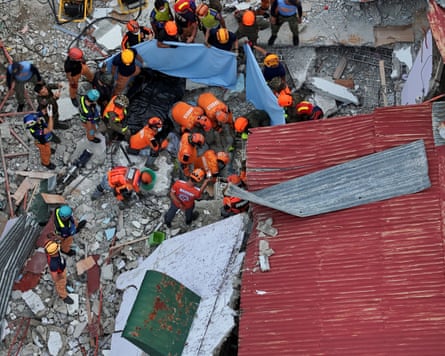
“We can expect aftershocks in the epicentral area,” Phivolcs said. “These aftershocks could persist for several days to weeks, and some may be felt in nearby provinces.”https://interactive.guim.co.uk/uploader/embed/2025/10/quake-zip/giv-32554wp39NoMQew0n/?dark=false
At the Cebu provincial hospital, workers loaded black body bags into vans that took the dead to local mortuaries.
“Many of them were pinned down by debris, which caused their death,” the Office of Civil Defense deputy administrator Rafaelito Alejandro said on local television, putting the updated death toll at 69.
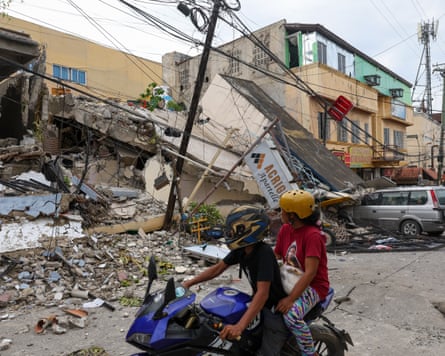
Richard Guion, 39, his left elbow heavily bandaged, told how he and his wife, who broke her foot, were dug from under the collapsed concrete wall of their home by their 17-year-old son, who was playing outside when the quake struck. “When the cement collapsed, I called out to him,” said Guion, thankful his son ignored his order to go to bed early.
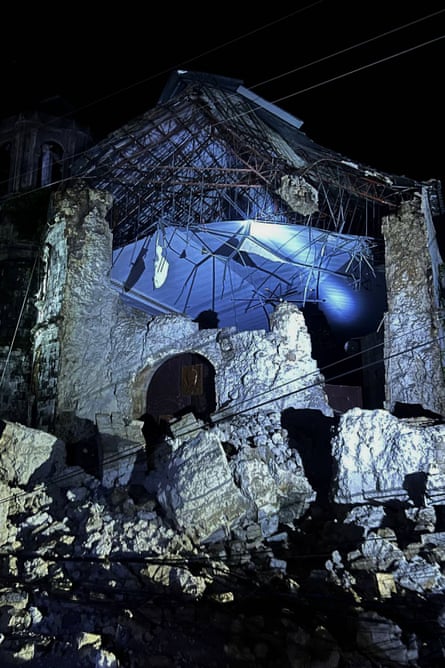
Thirty people were killed in Bogo, Alejandro said. In other municipalities near the quake’s centre, 22 were killed in San Remigio, 10 in Medellin, five in Tabogon and one each in Sogod and Tabuelan, he said. The Bogo hospital put the number of injured at 186 so far.
Teddy Fontillas, 56, told the Agence France-Presse news agency he had not slept while he helped transfer the injured to other hospitals. “I’m already struggling, but what we are doing is necessary to help our patients,” he said.
Elsewhere in Bogo, firefighters used excavators to drill holes into the collapsed heap of a two-storey motel, where two receptionists and a child were feared trapped beneath debris.
A distraught Isagani Jilig, whose wife and child were among the missing, joined about 100 people watching the rescue. “I will never leave this site until I find them again. As a father, I have to be strong now more than ever,” said Jilig, 41.
A firefighter, Erwin Castaneda, said they had been searching for five hours but “we cannot give up”. “We are talking about lives here. We will do everything that we can,” he said.
The president, Ferdinand Marcos, pledged swift aid for victims. “I offer my heartfelt condolences to the bereaved families,” he said.
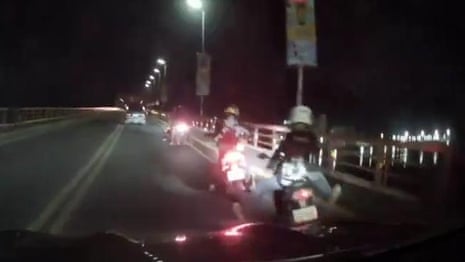
Dramatic footage filmed by residents on Bantayan Island, near the island of Cebu, showed a string of lightbulbs on an old Catholic church swaying wildly before the church’s belfry tumbled into the courtyard. Local television showed riders dismounting from their motorcycles and holding on to railings as a Cebu bridge rocked violently.
The Cebu provincial government has put out a call on its official Facebook page for medical volunteers to assist in the quake aftermath.
Local media reported that authorities had imposed price fixing on basic goods and fuel, to keep essential products available to people affected by the quake.
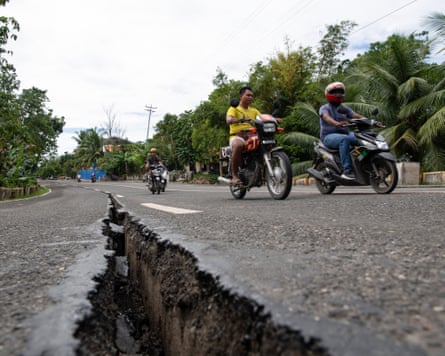
Earthquakes are a near-daily occurrence in the Philippines, which is situated on the Pacific “ring of fire”, an arc of intense seismic activity stretching from Japan through south-east Asia and across the Pacific basin. Cebu is a seismically active area.
Most are too weak to be felt by humans but strong and destructive quakes come at random, with no technology available to predict when and where they might strike.
- Agence France-Presse contributed to this report

